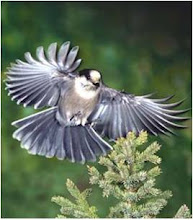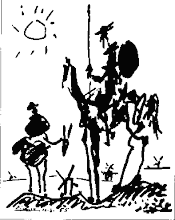The CBC is no longer allowing comments on
Indigenous stories because the results are stinking up the place. But will a Bambi-inspired approach of: "If you can't say anything nice don't say anything at
all," lead us toward a sunnier way? It may, but it will be a return to a national fantasy.
One exhibit in Shoal Lake 40's powerful Museum of Canadian Human Rights Violations contains a news article describing the prolonged absence of essential infrastructure in that First Nation - water, sanitation, health services. The display encourages visitors -primarily urban settlers- to read beneath the article to the spew of ignorant, racist comments that follow.
At the conclusion of the museum tour, guests almost invariably express dismay that the severe hardships suffered by the people of Shoal Lake 40 should have gone on for so long and in such plain view. At that point, they're reminded of the vitriol levelled at the First Nation by their fellow citizens …by urban dwellers who continue to draw benefit from a First Nation's imposed marginalization.
The hateful posts directed at Shoal Lake 40 in particular and Indigenous people in general are typical of what commonly pass for 'fair comment' in the media, the coffee shops and across the kitchen tables of our nation. We know …we know them far too well.
So, when museum visitors are shocked by the persistent injustice, persistent inaction, they're confronted by the black and white hate contained in those comments ...and it's plain that justice and equity are bogged down in the racism revealed in those comments. It's the racism sanctioned by very ordinary Canadian voters. For many, that unsettling image in the communal mirror becomes an "Aha!" moment. Almost invariably, there is resolution to make effort toward change.
At the conclusion of the museum tour, guests almost invariably express dismay that the severe hardships suffered by the people of Shoal Lake 40 should have gone on for so long and in such plain view. At that point, they're reminded of the vitriol levelled at the First Nation by their fellow citizens …by urban dwellers who continue to draw benefit from a First Nation's imposed marginalization.
The hateful posts directed at Shoal Lake 40 in particular and Indigenous people in general are typical of what commonly pass for 'fair comment' in the media, the coffee shops and across the kitchen tables of our nation. We know …we know them far too well.
So, when museum visitors are shocked by the persistent injustice, persistent inaction, they're confronted by the black and white hate contained in those comments ...and it's plain that justice and equity are bogged down in the racism revealed in those comments. It's the racism sanctioned by very ordinary Canadian voters. For many, that unsettling image in the communal mirror becomes an "Aha!" moment. Almost invariably, there is resolution to make effort toward change.
So a good argument can be made that settler Canadians need to be constantly reminded of our true range of colours, because only in realizing the worst of our tendencies will fair-minded Canadians find the energy necessary to deal with the flaws in our national character.
If our difficult truths are not constantly on ugly display, they can and will be denied. If the myth of Canada as a nice, respectful
nation is the only image we see, then self-satisfaction will forgive inaction
and our smugness will continue to blind us to our terrible complicity.
Let's keep our considerable capacity for meanness, greed and racism out in the open where we can keep watchful eye on it.
Let's keep our considerable capacity for meanness, greed and racism out in the open where we can keep watchful eye on it.
http://www.cbc.ca/newsblogs/community/editorsblog/2015/11/uncivil-dialogue-commenting-and-stories-about-indigenous-people.html

